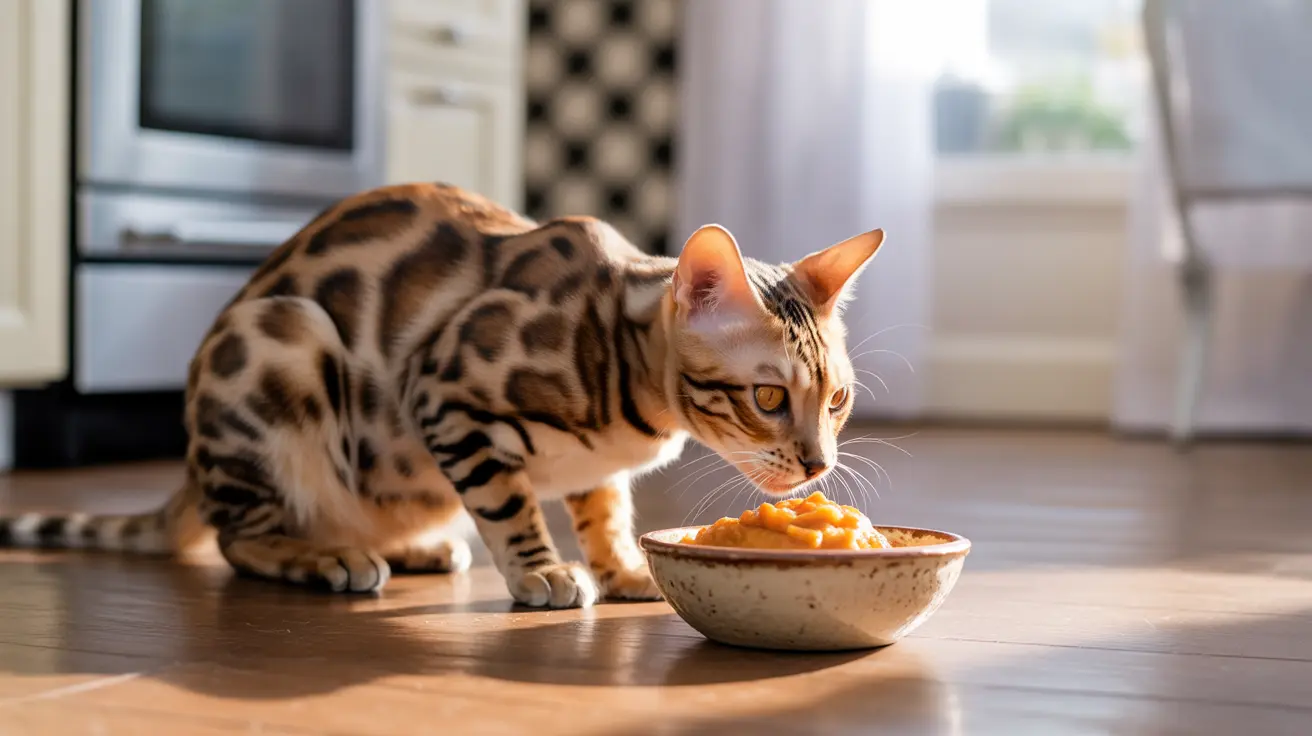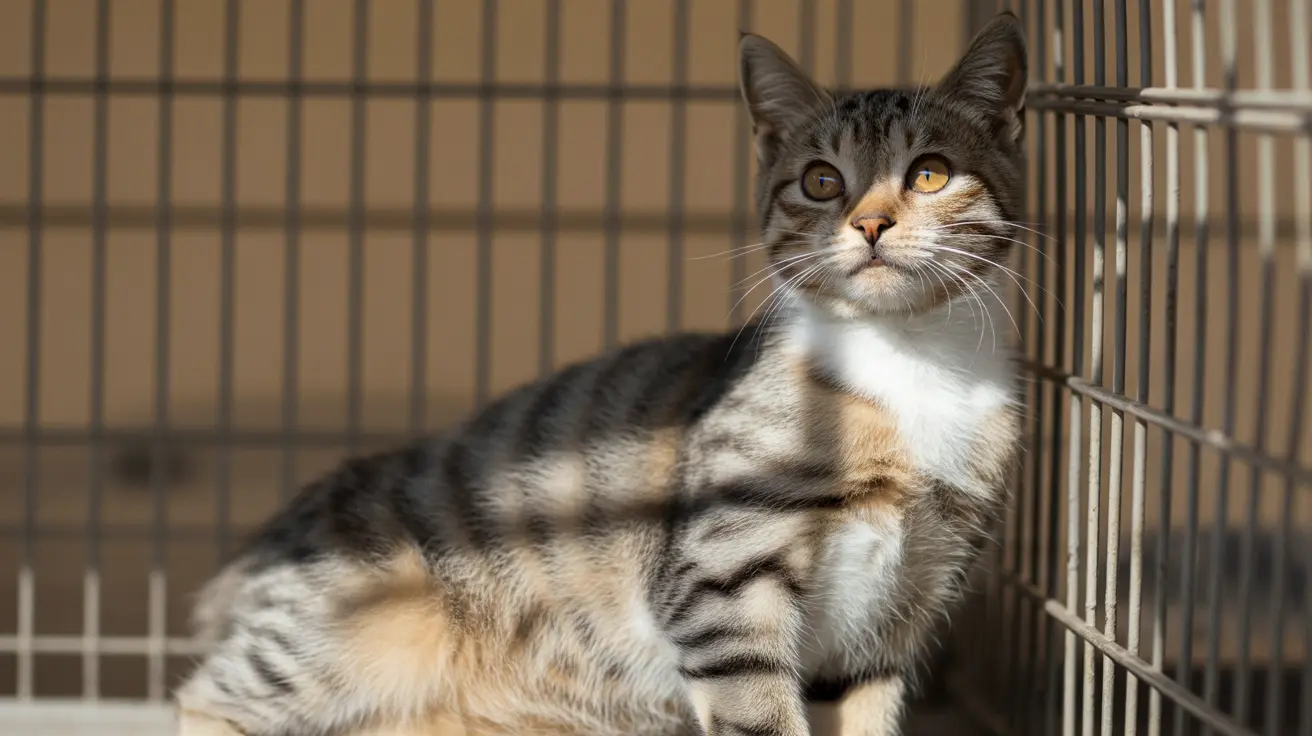As pet owners increasingly seek natural dietary supplements for their feline friends, pumpkin has emerged as a topic of significant interest. This nutrient-rich food offers several potential health benefits for cats, but it's essential to understand how to safely incorporate it into your cat's diet.
While cats are obligate carnivores requiring primarily meat-based nutrition, pumpkin can serve as a beneficial dietary supplement when offered appropriately. Let's explore why pumpkin might be good for your cat and how to safely include it in their diet.
The Nutritional Benefits of Pumpkin for Cats
Pumpkin packs an impressive nutritional punch that can complement your cat's regular diet. This orange superfood contains:
- Dietary fiber (both soluble and insoluble)
- Essential vitamins (A, C, E, and K)
- Minerals (potassium, phosphorus, calcium)
- Beta-carotene
- High water content
- Low caloric density
These nutrients contribute to various aspects of feline health, from digestive function to immune system support. The high moisture content can also help increase your cat's overall hydration, which is particularly beneficial for cats who don't drink enough water.
How Pumpkin Supports Digestive Health
One of the most celebrated benefits of pumpkin for cats is its positive impact on digestive health. The fiber content makes it particularly effective for addressing common gastrointestinal issues:
Managing Constipation
The soluble fiber in pumpkin helps draw water into the intestines, softening stool and promoting regular bowel movements. This makes it an excellent natural remedy for cats struggling with constipation.
Addressing Diarrhea
Surprisingly, pumpkin can also help firm up loose stools. The fiber absorbs excess water in the digestive tract, helping to normalize stool consistency.
Hairball Prevention
Regular consumption of pumpkin can assist in moving hairballs through the digestive system more efficiently, potentially reducing the frequency of hairball-related vomiting.
Safe Feeding Guidelines and Precautions
When introducing pumpkin to your cat's diet, following these guidelines is crucial:
Recommended Forms of Pumpkin
- Plain, cooked pumpkin puree
- Canned 100% pure pumpkin (no additives)
- Fresh pumpkin, cooked and pureed
Forms to Avoid
- Pumpkin pie filling
- Spiced pumpkin products
- Raw pumpkin
- Pumpkin skin or stems
The recommended serving size is approximately 1 teaspoon per day for adult cats. Start with a smaller amount and gradually increase to assess your cat's tolerance.
Potential Risks and Considerations
While pumpkin is generally safe for cats, there are some important considerations:
- Excessive consumption can cause digestive upset
- Some cats may have individual sensitivities
- Pumpkin should not replace proper veterinary care
- It's not a substitute for a balanced, meat-based diet
Frequently Asked Questions
Is plain pumpkin safe for cats to eat, and what are its health benefits?
Yes, plain pumpkin is safe for cats to eat. It provides fiber, vitamins, and minerals that can support digestive health, improve hydration, and help with hairball management.
How much pumpkin can I safely feed my cat each day?
The recommended amount is approximately 1 teaspoon per day for adult cats. Start with smaller amounts (¼ to ½ teaspoon) and gradually increase while monitoring your cat's response.
Can pumpkin help with constipation or diarrhea in cats?
Yes, pumpkin can help with both conditions. Its fiber content helps draw water into the intestines for constipation and absorbs excess water for diarrhea, helping normalize stool consistency.
How do I prepare pumpkin for my cat, and what types should I avoid?
Use plain, cooked pumpkin puree or 100% canned pumpkin without additives. Avoid pumpkin pie filling, spiced pumpkin products, and raw pumpkin. Never feed your cat pumpkin products containing sugar, spices, or artificial additives.
Are pumpkin seeds safe for cats, and what nutritional benefits do they offer?
Plain, roasted, and ground pumpkin seeds can be safe in very small amounts. They contain protein, healthy fats, and amino acids, but should only be offered occasionally and in minimal quantities to avoid choking hazards.
Remember to always consult with your veterinarian before making any significant changes to your cat's diet, including the addition of pumpkin as a supplement.






